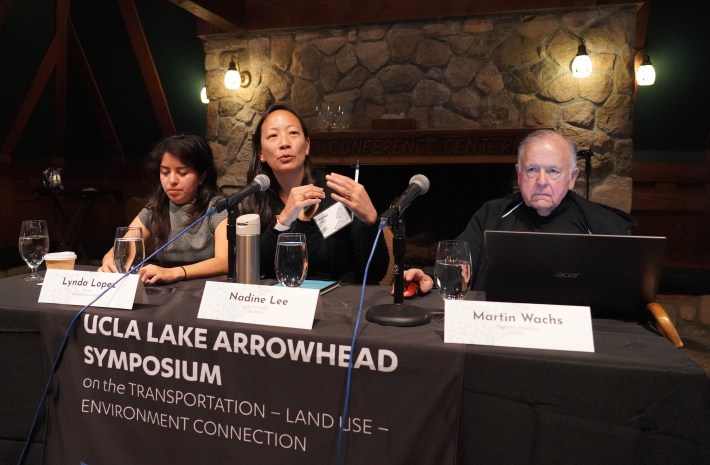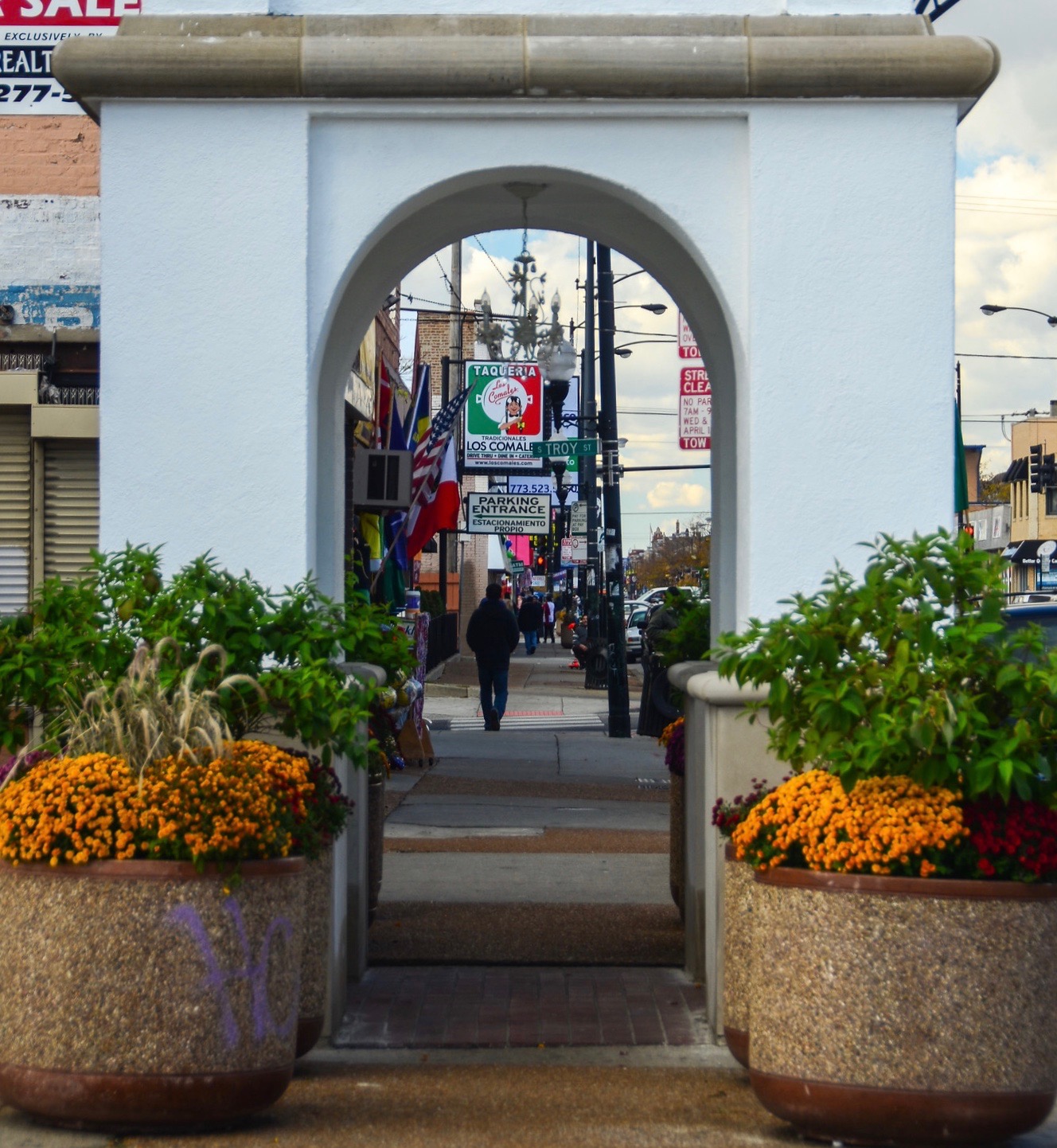Last week, I was in California for the UCLA Lake Arrowhead Symposium on equity and transportation. I was a reflection speaker for the last day alongside the chief of staff at LA Metro and a professor at UC Berkeley. Our role as reflection speakers was particularly interesting, as we were meant to bring forth our takeaways on themes and our overall reflections.
I was excited to have a chance to participate at a conference in a non-traditional way, especially one that challenged me to be attentive and actively reflect throughout. I voraciously took notes throughout the two days before my session. The night before presenting, I looked over all my notes and thought about what most stood out and what most mattered to me. All I could think about was the people presenters centered in their presentations, particularly people that often get overlooked in conversations about transportation equity.
I framed my conversation around the question, “Who do we think about as we do this work?” As we advocate for safer streets or expanded bus service, who is on our minds? The answer to that question illuminates a lot of how we approach the work. When we uplift the voices of the most marginalized, we help prevent their continual erasure in conversations. That is powerful to me.
As I wrote my reflection that night, I thought about the people uplifted that will now bring more nuance when I think of certain places. C Terrence Anderson of the University of Minnesota talked about Black and Brown residents facing displacement in the Twin Cities and how that connects to conversations around transit access. Rey León, Mayor of Huron, California, uplifted the stories of farmworkers in the San Joaquin Valley and their resilience in finding community-based solutions to mobility gaps. Genevieve Carpio, assistant professor at UCLA, highlighted how communities were displaced when freeways were built in Los Angeles and talked about the mobility challenges of residents in the Inland Empire. Michael Smart, assistant professor at Rutgers University, brought forth the importance that cars may have for low-income families, which isn’t always a conversation we want to have as transit advocates.

It was important for me to use my time to further underscore the importance of these stories. Oftentimes, transportation planning seems devoid of the stories of the most impacted. When we include those voices, our work becomes more nuanced and complex, but that depth makes our work better and more inclusive.
As practitioners and advocates in this field, we should always be considering who we may be erasing in our approach, who is potentially hurt, and what historical context we are missing.
Hearing stories allows me to more critically ask those questions even when they’re not well received by people who want simpler answers and approaches. I use this lens when I question whether to report a car parked in a bike lane, considering how police or data collection for some communities can mean further criminalization. I use this lens as I develop a stance on mobility justice that doesn’t erase the racist land use patterns that led to dependence on cars for many of our communities, particularly figuring out how not to use shame tactics. I try to consider what context I’m missing from communities, something I thought about as I visited the recent meeting on the proposed Drexel bike lane changes. While I’m a bike advocate, it was important for me not to come into this meeting as someone who doesn’t live there or frequents the area thinking I know better. My voice wasn’t needed when so many voices from the neighborhood clearly laid out their priorities.
My biggest reflection and takeaway from this convening is wondering what a comprehensive community engagement process looks like that is framed around values that center mobility and transit justice, but that make room for those experiences that may not seem to have a place. We all want freedom of movement and I think a vision for that means relationship-building, political education, and centering those most marginalized in planning.






